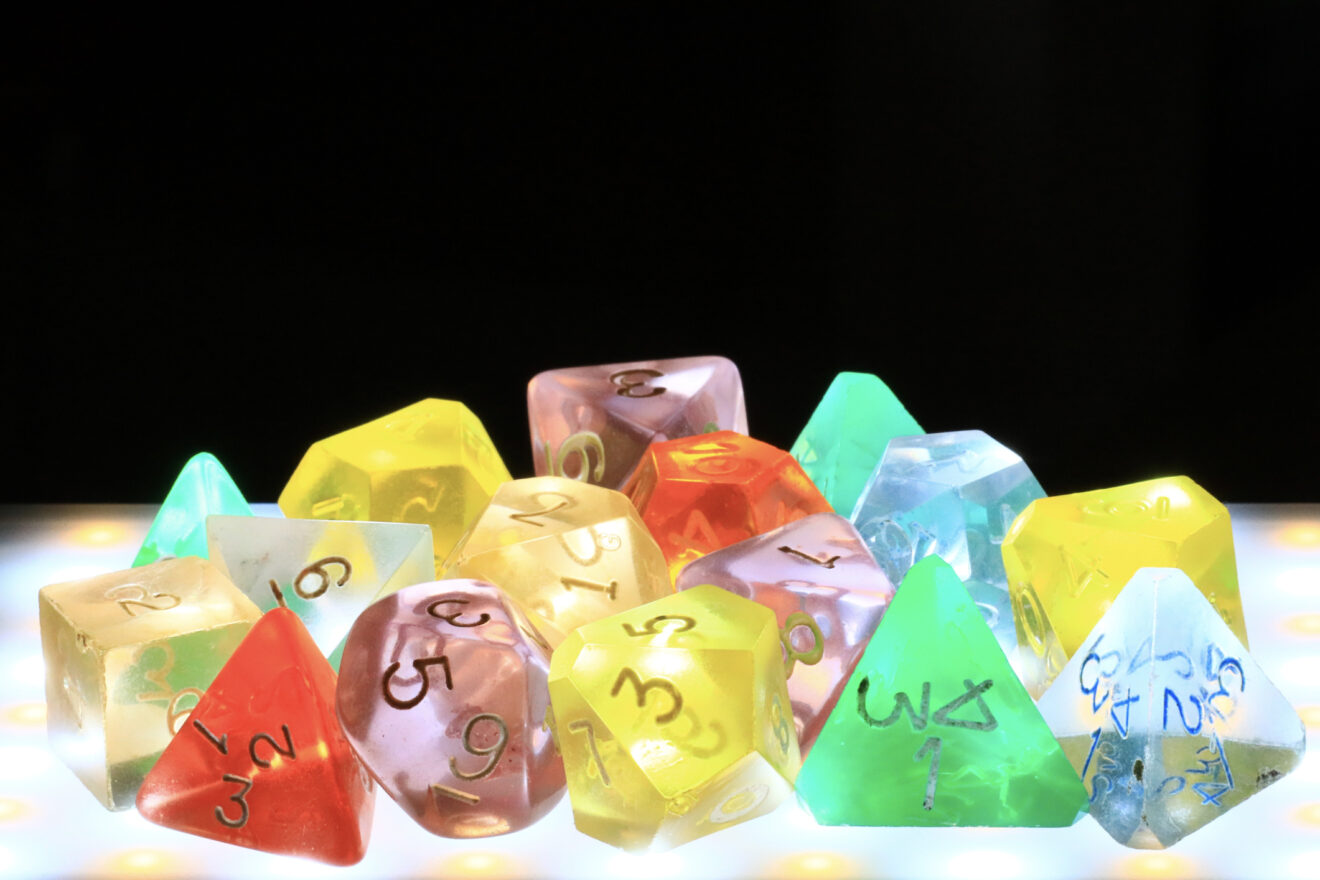
A few months ago I picked up a hobby I hadn’t thought about in quite some time: I joined a number of great people on a Dungeons & Dragons campaign. We are a great group — well-matched in our personalities and the characters we have created. After our last session, I got to thinking how there are many elements of gameplay and game thinking that are connected to effective leadership. Here are a few of the ideas I have been thinking about.
Sometimes leadership is a roll of the die
Depending on the game you’re playing, a die, or a series of dice, can be all that stands in the way of a horrible loss or a considerable success. That isn’t to say that everything is luck, of course, but there are always elements of timing, the environment and random characteristics that we can’t do something about.
The lesson learned? Sometimes you have to be prepared for even the most unlikely situation to occur. As an example, in a recent gaming session, my character, a Paladin name Rakeee, should (note the use of the word “should”) have delivered a powerful attack on a monster our group was facing. Unfortunately, my roll was terrible, and I ended up doing no damage. Life in the real world can be similar, and for that reason, we need to be capable of thinking both inside and outside the box for all scenarios.
Practice makes closer to perfect
While we can never hope to be perfect in all things we do (would we even want to be?), as a gamer, I can attest to the fact that continuing to work on a level, attempt to defeat a boss and/or explore a gaming environment can help tremendously in understanding how best to move forward.
In real life, continuing to work on an idea, project or experience from different perspectives and in different ways can help us lead more effectively. While we always want to be as efficient as possible, more often than not, taking our time, continually making adjustments to how we engage in our work, stands to provide better results, both in the short and long term.
Collaborative play opens up doors
Sometimes you want to engage in games by yourself (solitaire, anyone?) and at other times, gaming with others is a much more powerful experience. Leading can be lonely. While others may have similar experiences, too often we don’t provide ourselves with the time to engage in all the benefits that working with others can provide.
In my region of New York, we have a number of collegial circles, councils and forum groups that allow role-alike and interest-alike educators to gather to share experiences, seek out assistance and learn together. Those same benefits present themselves when we game together. Whether we are playing on the same team in a true collaborative spirit, or are playing against each other competitively, the benefits for our growth can be significant.
Different environments, different perspectives
The fantastical worlds that games create for us are sometimes precisely what we need to see in order to more clearly understand the real world in front of us. For example, in our weekly Dungeons & Dragons sessions, I regularly find myself paying close attention to the skills and attributes of the rest of my traveling party to help me understand what will serve us best in a world built around magic and monsters.
This idea of understanding the strengths and weaknesses that we all bring isn’t a foreign idea, yet sometimes we can lose sight of these types of thought patterns when we look at the world through the same lens each and every day. Shifting that focus from time to time, even in a world of talking bears and ice spells, can help us see the real world in a clearer light.
Gaming and real life have a lot in common. In fact, the skills we develop in one can translate quite well to the other. Whether considering varied perspectives, building skills through repetition, playing with others or just welcoming luck, elements of game design and thinking can help us play (and win) in the game of life.
Fred Ende is the director of curriculum and instructional services for Putnam/Northern Westchester BOCES in Yorktown Heights, N.Y. Ende currently blogs for SmartBrief Education, and his two books, “Professional Development That Sticks” and “Forces of Influence,” are available from ASCD. Connect with Ende on his website or on Twitter.
Opinions expressed by SmartBrief contributors are their own.
________________________________
Subscribe to SmartBrief’s FREE email ASCD newsletter to see the latest hot topics in education. It’s among SmartBrief’s more than 250 industry-focused newsletters.
